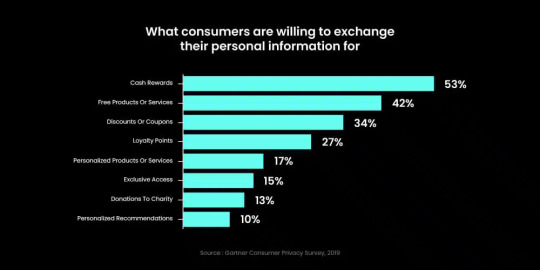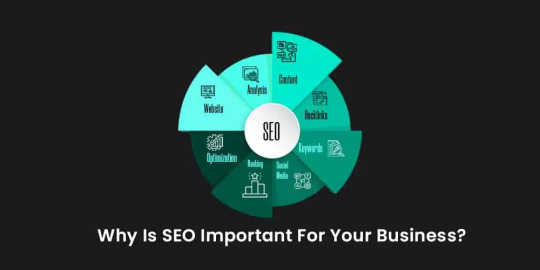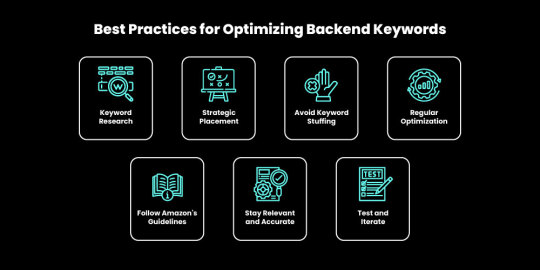Text
Backlinks can work wonders for your website, acting like recommendations from trusted sources. However, there's a right way to go about it! Let's explore seven crucial tips to ensure we make the most of this valuable tool.
Do's:
Prioritize Quality: Focus on obtaining backlinks from reputable and relevant websites. A handful of high-quality links outweigh numerous weak ones.
Foster Relationships: Establish genuine connections with site owners, fostering lasting and organic backlinks through natural interactions.
Anchor Text Relevance: Ensure that the anchor text aligns with the linked content, enhancing its resonance with search engines.
Context is Key: Embed backlinks within contextually relevant content, aiding search engines in recognizing their significance.
Don'ts:
Say No to Purchased Links: Steer clear of purchasing backlinks, as search engines penalize this unethical practice.
Stay Relevant: Avoid acquiring links from unrelated sites, which can arouse suspicion. Opt for logical connections within your content.
Abandon Keyword Overload: Refrain from excessive keyword stuffing in the anchor text, as it may trigger penalties from search engines.
Beware of PBNs: Exercise caution with Private Blog Networks (PBNs), as they involve low-quality sites exclusively utilized for backlinks, a practice frowned upon by search engines.
In conclusion, building a strong link network takes time and a good plan. Follow these tips to create a strong link collection that boosts your website's reputation. Remember, be honest, keep it on-topic, and make sure it's high quality. If you want to learn more about this topic, read our detailed blog!
#backlink building#link building#dos and donts of link building#SEO#Search engine optimization#SEO strategy#Tips for link building
2 notes
·
View notes
Text
In today's ever-evolving business landscape, the key to achieving growth, whether you're just starting out or an established brand, lies in forging authentic connections with your customers.
Here are five essential steps to truly understand and engage with your audience:
1. Listen Actively: Pay close attention to customer feedback in reviews, comments, and messages. Their insights are golden.
2. Segment Your Audience: Divide your target customers into distinct groups based on interests and behaviors. This enables tailored interactions.
3. Personalize Interactions: Use customer names and offer suggestions that align with their preferences. Demonstrating understanding makes a big impact.
4. Explore Social Media: Dive into social media for insights into customer thoughts, trends, and preferences.
5. Gather Feedback: Create simple surveys or polls to directly ask customers for their opinions. Their responses reveal valuable insights.

If you're eager to delve deeper, you can explore a more detailed version here.
Discover how to transform these insights into strategies that resonate deeply with your audience. Learn to craft messages, create products, and design experiences that truly align with your customers.
Remember, understanding your customers isn't just business – it's the key to becoming a brand that genuinely connects with them.
#digital marketing#branding#understand your customers better#Identity your target audience#customer persuasion techniques
0 notes
Text
Step Up Your Advertising Game: How to Avoid Banner Blindness
In the world of digital marketing and online advertising, there's a phenomenon known as "Banner Blindness" that has a significant impact on the effectiveness of display ads. Banner blindness refers to the tendency of internet users to ignore or overlook banner ads and other forms of display advertising, often resulting in low click-through rates and diminished brand exposure.
This phenomenon has emerged as a challenge for marketers striving to engage their target audience effectively. However, there are several strategies that can be employed to mitigate banner blindness and enhance the performance of display ads.
Understanding Banner Blindness
Banner blindness stems from the overwhelming presence of advertisements across websites and digital platforms. As users spend more time online, they develop a subconscious ability to filter out and disregard these ads, focusing solely on the content they are actively seeking.
This presents a considerable hurdle for advertisers looking to capture users' attention and communicate their brand messages.
Ways to Avoid Banner Blindness
Relevant and Contextual Placement: Display ads that are strategically placed within relevant content are more likely to catch the user's attention. When the ad aligns with the user's interests and the context of the page, they are less likely to ignore it.
Personalization: Utilizing data-driven insights to personalize ads based on user behavior and preferences can significantly enhance their relevance. When users see content that resonates with them, they are more inclined to engage.
Intriguing Visuals and Animation: Incorporating eye-catching visuals and subtle animations can break the monotony of static display ads. Movement and dynamic elements can attract the user's gaze and encourage interaction.
Interested in finding out what other key points you need to keep in mind to reduce the chances of banner blindness? Check out more strategies in this detailed blog to make the most of your advertising efforts.
By implementing these strategies, you can create display ads that are more likely to capture and hold users' attention, ultimately driving higher engagement rates and achieving the desired advertising goals.
Until next time :)
#banner blindness#digital marketing#advertising tips#advertising#digital advertising#online marketing
0 notes
Text
From Keywords to Ranking: Your Most Common SEO FAQs Answered
SEO (Search Engine Optimization) can sometimes feel like a puzzle, but it's not as complicated as it seems. Let's tackle some of the most common SEO questions in a simple and straightforward way.

What are Keywords, and Why Do They Matter?
Keywords are the words and phrases people use to search for things on the internet. They matter because they help search engines understand what your webpage is about. By using relevant keywords in your content, you increase the chances of your page showing up in search results.
2. How Do I Choose the Right Keywords?
Think about what words or questions your target audience might type into a search engine. Tools like Google Keyword Planner can help you find popular and relevant keywords for your content.
3. How Long Does It Take to See Results?
SEO takes time. It might take a few weeks or even months to see significant changes in your rankings. Be patient and consistent with your efforts.
4. Should I Pay for Backlinks?
No, avoid paying for backlinks. Search engines prefer natural, organic backlinks that come from genuine sources. Buying backlinks can lead to penalties.
5. Can I Copy Content from Other Sites?
It's best to avoid copying content from other sites. Search engines value original content, and copying can lead to duplicate content issues and lower rankings.
6. How Often Should I Update My Content?
Regular updates are good for SEO. If you have a blog, aim to post new content consistently. Updating older content with new information can also help.
Have more questions? We have got the answers to all of your questions. Check out this blog for the answers to your most common SEO FAQs.
Till then, Happy Reading! :)
#seo#seo optimization#seo strategy#seotips#onlinevisibility#onpageseo#off page seo#digital marketing
1 note
·
View note
Text
What is the Importance of Backend Keywords in Amazon Listing Optimization
In the realm of Amazon marketing, backend keywords play a crucial role in optimizing Amazon listings and improving product visibility and discoverability. While front-end keywords are the ones visible to customers, back-end keywords are hidden from view and are used by Amazon's algorithm to understand the content and relevance of a product listing.

Here's why you should focus on optimizing your listings with backend keywords:
1) Improved Search Ranking
2) Increased Visibility
3) Better Targeting
4) Competitive Advantage
5) Improved Conversion Rate
To gain a better understanding of the importance and significance of backend keywords in Amazon listing optimization and to learn how to effectively incorporate them into your product listings, you can check out this blog post.
In this blog post, you'll find,
– What are backend keywords?
– How do they differ from front-end keywords?
– What is the importance of optimizing backend keywords for your product listing?
– Best practices for optimizing them to enhance your Amazon SEO strategy.
– Benefits of using Amazon backend keywords.
– And the best tools for finding backend keywords for your listing optimization.
So, dive in to uncover the power of backend keywords that will help you optimize your Amazon listings for maximum visibility, traffic, and conversions.
#amazon marketing#Amazon backend keywords#Amazon listing optimization#Amazon Product listing optimization#Amazon SEO Strategy#digital marketing
1 note
·
View note